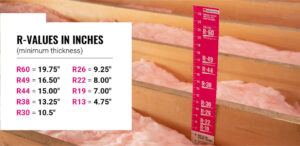In the realm of home energy efficiency, few elements play as crucial a role as insulation. It acts as a barrier, preventing the transfer of heat between the interior and exterior of a house. This seemingly simple function has far-reaching implications for both homeowners and the environment.
Proper insulation is synonymous with lower energy bills. By effectively sealing off the home from outside temperatures, insulation reduces the need for constant heating or cooling. As a result, homeowners can enjoy significant savings on their utility bills, particularly in regions with extreme temperatures.
Comfort is another key benefit of adequate insulation. A well-insulated home maintains more stable indoor temperatures, eliminating drafts and cold spots. This not only enhances comfort but also promotes better indoor air quality by minimizing the infiltration of pollutants and allergens.

Moreover, investing in quality insulation contributes to environmental sustainability. Reduced energy consumption means lower greenhouse gas emissions associated with heating and cooling systems. By minimizing our carbon footprint, we can collectively work towards a greener, more sustainable future.
When it comes to insulation materials, there is no shortage of options. From traditional fiberglass batts to innovative spray foam and eco-friendly cellulose, each material offers unique advantages in terms of cost, performance, and environmental impact. Choosing the right insulation for your home requires careful consideration of factors such as climate, budget, and desired R-value.

